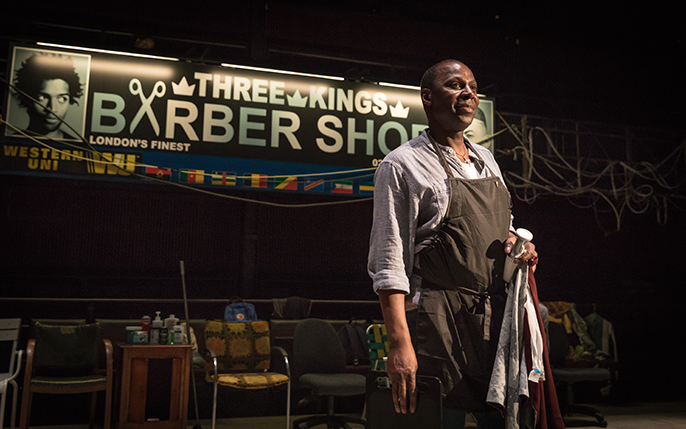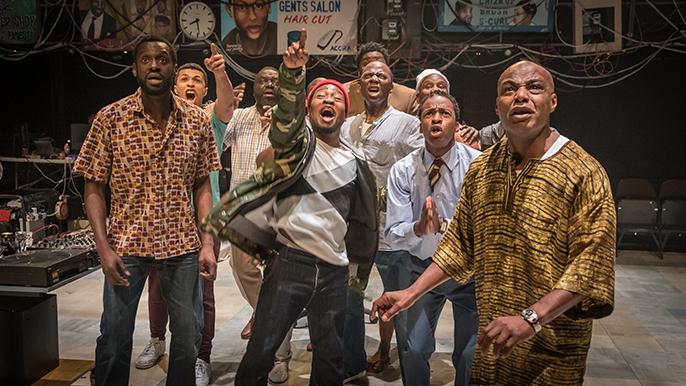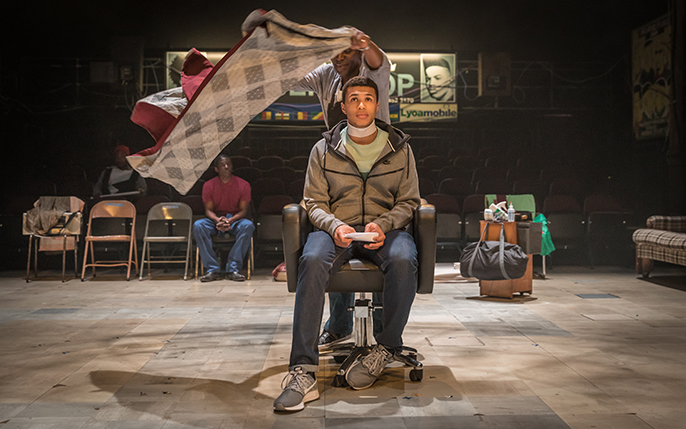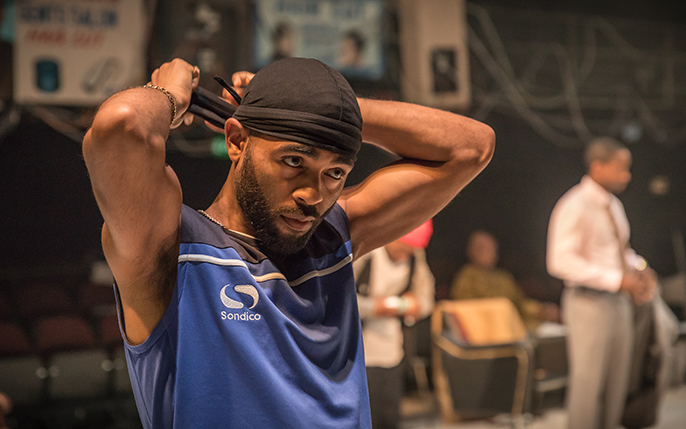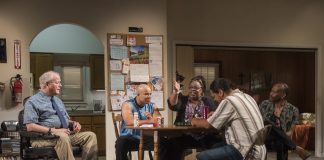In the spirit of full confession, reader, I shave my own head, so I haven’t been to a barber shop in over 20 years now. But back in the day, I used to have a lot of hair (think Kid from House Party). Thus in my time, I have frequented barber shops in London, Harlem, Washington Heights, New Jersey, Cape Town, Kingston (JA) and the French Caribbean. (Big Russ’Barbershop in Harlem was my favourite, closely followed by a Dominican place in Washington Heights with tonsorial artistry worthy of Michelangelo). Suffice to say, I know of what I speak.
See listing for Barber Shop Chronicles
So Barber Shop Chronicles, a new play by Inua Ellams at the National, brings me back forcibly to those years spent in barber shops in insalubrious neighbourhoods, all in search of a decent trim, fade and a shave. How I miss the long wait, the demagoguery, the braggadocio and homespun wisdom imparted through the buzz of clippers and ebonics!
Barber Shop Chronicles valiantly tries to do justice to an important area of our racial and cultural landscape.
Barber Shop Chronicles is a tangentially inter-connected set of scenes in black barbershops in London and various cities across Africa – Lagos, Accra, Kampala, Harare and Jo’burg – and functions as an exploration of black masculinity, errant fatherhood and the safe space which the black barber shop affords as a quasi-philosophical forum for male bonding, bonhomie and badinage, let alone a place to come for a haircut. With jocular verbal one-upmanship and linguistic jousting, it is a place where identity, politics, family relationships, race, religion and sexuality can all be discussed, a place where black men can confessionally express their innermost thoughts about life, the universe and the kitchen sink.
By setting the play in barber shops across the urban African diaspora on the same day in 2012, Ellams deftly highlights the similarity, communality and therefore universality of the black male experience and how it manifests itself on different continents.
And yet, despite being an energetic, rousing production, powerfully directed by Bijan Sheibani, Barber Shop Chronicles covers familiar ground. Eddie Murphy and Arsenio Hall in Coming To America (1988) and Ice Cube in Barbershop (2002), not to mention Channel 4’s Desmond’s, have all been here before. Although there is little new, striking or revelatory here, the stories about black masculinity and fatherhood are enjoyable but somewhat predictable.
However, a talented ensemble cast, with old stalwart Cyril Nri displaying his customary zeal and vigour, bring the writing to life. As an unashamedly populist production – replete with stylishly choreographed, shamelessly feel good, Afro-beat dance interludes between scenes to indicate different geographical locations (it’s always good to hear Blackstreet’s No Diggity), the standing ovation which the production received last night from the audience (of metropolitan liberals and people of African heritage) was not surprising.
This play will doubtless appeal to both those who have never stepped foot inside a black barber shop before and those who like to see their community depicted on stage. The production set of black barber shop signage from around the world, superbly designed by Rae Smith, strongly contributes to creating this authentic aesthetic.
For me, Anthony Welsh’s stand out performance as Winston, the sole Jamaican character in an otherwise all African charactered play, was hands down the highlight of the night. With his magisterial charm, he effortlessly steals every scene he is in. Utterly captivating and charismatic, Welsh is a colossal (if under-used) talent. Wake up, Britain! This man deserves his own show!
With its laudable intentions to confront pernicious, debilitating stereotypes about the old chestnut of black masculinity, Barber Shop Chronicles valiantly tries to do justice to an important area of our racial and cultural landscape.























![[left] - Fisayo Akinade (Samuel) and Peter Bankol (Kwabena) and [right] Cyril Nri (Emmanuel) Kwami Odoom (Ethan) in Barber Shop Chronicles at the National Theatre (c) Marc Brenner](https://www.afridiziak.com//wp-content/uploads/2017/07/barber-shop-chronicles-04.jpg)
